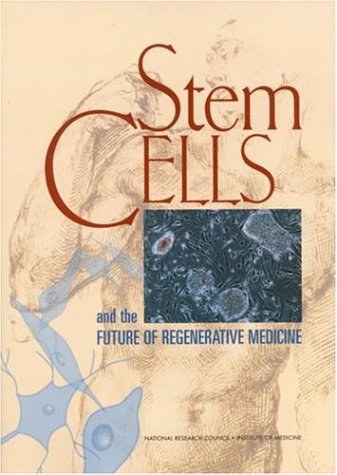Recent scientific breakthroughs, celebrity patient advocates, and conflicting religious beliefs have come together to bring the state of stem cell research – specifically embryonic stem cell research – into the political cross hairs. President Bush’s watershed policy statement allows federal funding for embryonic stem cell research but only on a limited number of stem cell lines. Millions of Americans could be affected by the continuing political debate among policy makers and the public. “Stem Cells and the Future of Regenerative Medicine” provides a deeper exploration of the biological, ethical, and funding questions prompted by the therapeutic potential of undifferentiated human cells. In terms accessible to lay readers, the book summarizes what we know about adult and embryonic stem cells and discusses how to go about the transition from mouse studies to research that has therapeutic implications for people. Perhaps most important, “Stem Cells and the Future of Regenerative Medicine” also provides an overview of the moral and ethical problems that arise from the use of embryonic stem cells. This timely book compares the impact of public and private research funding and discusses approaches to appropriate research oversight. Based on the insights of leading scientists, ethicists, and other authorities, the book offers authoritative recommendations regarding the use of existing stem cell lines versus new lines in research, the important role of the federal government in this field of research, and other fundamental issues.
Medicine
{PDF} Stem Cells and the Future of Regenerative Medicine Committee on the Biological and Biomedical Applications of Stem Cell Research, Commission on Life Sciences, National Research Council, Board on Neuroscience and Behavioral Health, Institute of Medicine
$9.99






Reviews
There are no reviews yet.